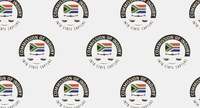
Zondo Commission – Eskom’s disregard of procurement processes in the spotlight

Zwane’s alleged interference in the 2015 acquisition of Optimum coal mine from Glencore Minerals by the Gupta-owned Tegeta Exploration is one of several missing puzzle pieces in previous investigatory processes into the alleged capture of the power utility. Following the takeover, Tegeta entered into a contract with Eskom worth over R3-billion for the opportunity to supply it with coal for 10 years.
Several eyebrow-raising developments around the transaction have been noted, including a trip by Zwane to Switzerland in that year, allegedly with the purpose of strong-arming Glencore into submission over Optimum. Glencore was also forced into a corner, and subjected to penalties of up to R1.2-billion, when Eskom allegedly found the quality of their coal at Optimum to be below the standard required. Seemingly caught between a rock and a hard place, Glencore submitted to the pressure, Tegeta took over and was soon rolling in it.
Wednesday marked the beginning of the commission’s focus on state owned entities in the state capture project, with Eskom first in line. Maleka spent the day outlining to Zondo how his team has structured its evidence around Eskom, all the while avoiding the duplication of previous processes. His point of departure was a report by the National Energy Regulator of South Africa (Nersa) that put into perspective the power utility’s incapacitated status to provide electricity adequately, leading to a series of loadshedding occurrences in 2008 – the first of many to follow.
A key volume of evidence for the commission has come out of the parliamentary inquiry into Eskom, which was concluded last year. The portfolio committee on public enterprises heard oral testimony and accepted submissions from a variety of sources close to the governance issues that plagued Eskom for years. In his recent state of the nation address, president Cyril Ramaphosa announced the unbundling of Eskom, to mixed reactions from the business and political sectors, among others. The utility operates on a near-insolvency status, but if handled strategically well, could use the latest multi-billion-rand bailout from finance minister Tito Mboweni, announced in the national budget presentation on the same day, to get its head back above water.
Maleka and his team have lined up several witnesses and it is hoped that they will be able to shed light on serious issues that led to the gross flouting of procurement legislation and processes by Eskom leadership, particularly when it came to the companies owned by, or linked to the Gupta family.
The current chairperson of Eskom, Jabu Mabuza, will be the first in a long list of witnesses. His evidence, Maleka explained, is brought forward first so as to help the commission paint a picture of the Eskom that Mabuza and the rest of his board inherited. What they found when they took over is vital for setting the scene for the rest of the evidence that will follow.
Content is originally produced by Corruption Watch
